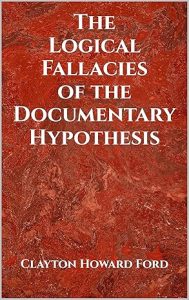“Moreover, when you fast, do not be like the hypocrites, with a sad countenance. For they disfigure their faces that they may appear to men to be fasting. Assuredly, I say to you, they have their reward. But you, when you fast, anoint your head and wash your face, so that you do not appear to men to be fasting, but to your Father who is in the secret place; and your Father who sees in secret will reward you openly” (Matt. 6:16-18).
I once took a journalism class in high school. I was taught that a good newspaper article answers six basic questions: what, who, when, where, why, and how. In today’s lesson, I will answer those six basic questions about fasting.
What is fasting? The Greek word for “fast” is nesteuo, which means “to abstain from food or food and drink.” That is all fasting is. It is simply not eating for a certain period of time.
Who should fast? All believers should fast. Notice that Jesus said, “When you…”, not, “If you….” Jesus assumed that his followers would fast. In fact, he said that they definitely will fast once he leaves: “Can the friends of the bridegroom mourn as long as the bridegroom is with them? But the days will come when the bridegroom will be taken away from them, and then they will fast” (Matt. 9:15). However, we will no longer need to fast once he returns.
When should we fast? There is no requirement in Scripture as to when we should fast. That is between you and the Lord.
Where should we fast? In secret. Jesus said we should make it a point to not let others know that we are fasting. That does not mean that we have to lie to people. If they ask whether we are fasting, we can tell them the truth. But we do not have to broadcast it either. If someone asks you to dinner during a time that you are fasting, you do not have to say, “I cannot come because I am fasting.” You can say, “I am not available at that time. May we schedule that for a different day?”
Why should we fast? We should fast for two reasons. First, fasting is a spiritual weapon. When the disciples asked why they were unable to cast out the demon in the epileptic boy, Jesus’ answer was, “This kind does not go out except by prayer and fasting” (Matt. 17:19-21). This means that prayer and fasting can be used as weapons against demonic activity. Notice, however, that Jesus did not say to the boy’s father, “Come back in three days so I can fast and pray about this.” No, Jesus cast the demon out immediately, which suggests that Jesus had already been praying and fasting. In other words, Jesus had a lifestyle of fasting. He fasted regularly so that when situations like this came up, he was ready for it.
Second, fasting is used to seek God’s favor. The believers fasted and prayed for God’s favor when someone was about to start a new ministry (Acts 13:2-3; 14:23). Jesus fasted at the beginning of his ministry (Luke 4:1-2). Ezra and those with him fasted to seek God’s direction and protection (Ezra 8:21-23). Esther asked the Jews to fast to seek God’s protection for her (Esther 4:16). Others would pray and fast to seek God’s favor on others, that is, they would fast when they engaged in intercessory prayer (Deut. 9:18-19; Ps. 35:13).
However, fasting ALONE does not procure God’s favor. Notice how prayer was also included in these Scriptures. But even fasting and prayer do not automatically procure God’s favor.
Thus says the Lord to this people:
“Thus they have loved to wander;
They have not restrained their feet.
Therefore the Lord does not accept them;
He will remember their iniquity now,
And punish their sins.”
Then the Lord said to me, “Do not pray for this people, for their good. When they fast, I will not hear their cry; and when they offer burnt offering and grain offering, I will not accept them. But I will consume them by the sword, by the famine, and by the pestilence” (Jer. 14:10-12).
Fasting and prayer must be part of a righteous lifestyle (Is. 58:1-8). Or else it must be a part of repentance (Joel 2:12-14). When the people of Nineveh heard Jonah’s warning, they repented by fasting and by putting on sackcloth, which means that they also humbled themselves (Jonah 3:5-10). David said that he humbled himself with fasting (Ps. 35:13).
The point of fasting is to humble ourselves before God. Its purpose is to get the focus off of us and onto God. As God asked the Israelites through the prophet, Zechariah, “Did you really fast for Me—for Me?” (Zech. 7:1-10). That is why the Pharisees got it all wrong when it came to fasting. In their pride, they made it all about themselves. They fasted to show God and everyone else how righteous they were. But the point of fasting is to humble ourselves before God and spend some time alone with him in secret.
So why do we fast? Because sometimes spending time with God is more important than eating. We fast not just for the sake of doing something spiritual and maybe earning brownie points with God. And we do not fast so that we can have more time to watch TV or read books or do what we like to do. We fast so that we can spend more time with God. The believers fasted and prayed because spending time with God to make sure these new ministers got off to a good start was more important than eating. Ezra fasted and prayed because having God’s protection for the trip to Israel was more important than eating. The Ninevites fasted and prayed because avoiding God’s wrath was more important than eating. David fasted and prayed because seeing his friend get well was more important than eating. In each case, the need was so urgent that everything else, including eating, was set aside while they sought God and his favor. Not that fasting is a way to twist God’s arm and get what we want. It is a way to humble ourselves before him and submit to his will. Besides, sometimes we fast and pray just because we want to spend more time with God.
How do we fast? There are different kinds of fasts: vegetables only (Daniel fast), juice only, and no food at all. Which fast you choose to do is again between you and the Lord. I would suggest that no matter which fast you choose you start with one meal, then one day, then one week. And during your fast, unless the Lord tells you otherwise, drink plenty of water. Moses did not eat or drink water for 40 days twice (Deut. 9:9, 18), but that is not the norm.
An elder in one of the churches I used to attend took some teenagers to a youth conference. They knew that there would be a call given at this conference for the youth to fast and pray, so on the trip to the conference the subject of fasting came up. One of the teenage boys said, “I tried fasting once for two whole hours. Man, was it hard!” That may be hard for a teenager, but most adults should be able to go for two hours without getting hungry.
In my experience, the first three days are the hardest. Your body is constantly reminding you that you should eat. You may find yourself thinking about food all the time. You may have the urge to visit every restaurant in town. Foods that you have not eaten in years may suddenly become the foods you desire the most. Fight your way through it. It gets better after three days. That’s when your body finally realizes that you are not going to feed it, so it starts to feed off itself. The cravings stop and food is no longer the foremost thing on your mind. However, after 40 days, your body really does need food. No one in the Scriptures fasted more than 40 days, so your fast should also last no more than 40 days.
Those are the answers to the six basic questions on fasting. I hope this has been helpful.








